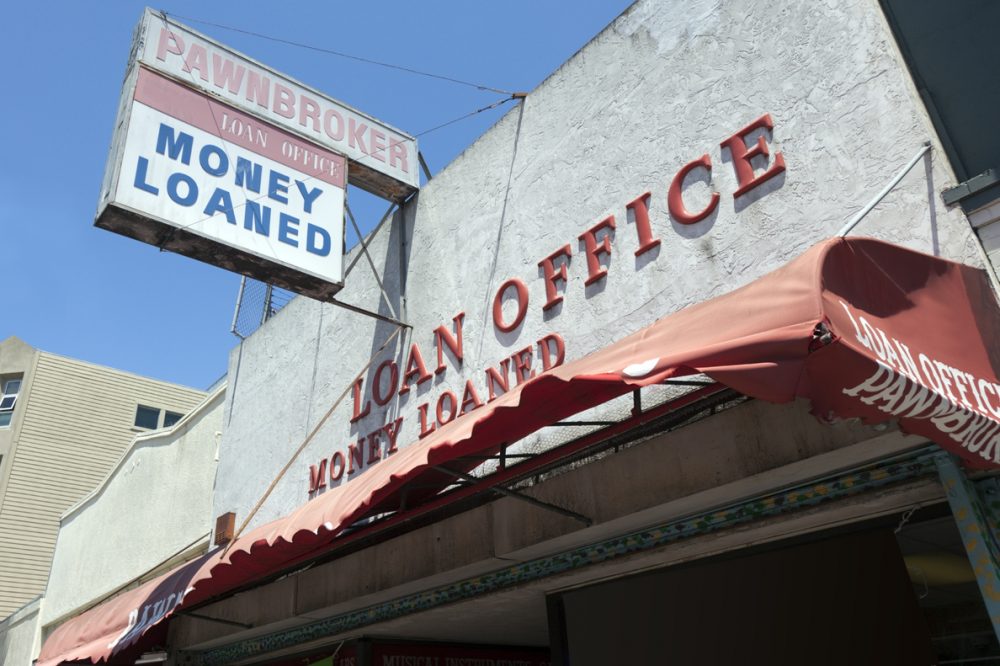EMERGE Financial Health 2021 Schedule
EMERGE Financial Health is an immersive virtual event introducing you to the leaders shaping financial health’s future.
Financial Health Impact Lab: Innovation Highlights
Developing and testing innovative solutions is key to advancing financial health. That’s the driving force behind the Financial Health Impact Lab – a program that supports the groundbreaking work of organizations at the forefront of financial health measurement, like those profiled here.
Good Jobs Matter: Improving Job Quality for Low-Income Workers
While employee benefits are clearly important for financial health, they are the job quality dimension rated lowest among low-income workers. In order to improve employee financial health, employers should invest in benefits that support worker financial well-being.
Financial Health Solutions: Using Tax Refunds for Debt Repayment
As consumers around the world struggle to manage debt, learn about the impacts of digital initiatives on debt repayment during tax refund season.
Financial Health Network Statement on CFPB Payday Loan Rule Underwriting Rescission
The Financial Health Network wrote this response to the CFPB’s decision to rescind the mandatory underwriting requirements of 2017 Payday, Vehicle Title, and Certain High-Cost Installment Loan Rule (Payday Rule).
Old Tricks, New Hat — Helping Americans Save in New Places
By Tanya Ladha, Senior Director at Financial Health Network Saving money is hard. So hard, in fact, that experts and academics have spent decades studying human behavior in an effort to make it easier for us, designing tricks and hacks that help us save — automating savings (think 401k retirement plans, created for us to set-it-and-forget-it), turning…
Inside the Wallets of Working Americans: The 2nd Annual Salary Finance Report on Employee Financial Stress
Provided by Salary Finance, this research delves into the impact that financial stress has on American workers and how that stress affects their daily productivity in the workplace.
“Keep the Change”: How Bank of America Pioneered Roundup Savings
By John Thompson, Chief Program Officer, Financial Health Network A main goal of the BlackRock Emergency Savings Initiative is to build and integrate better savings tools to help individuals, especially those with low-to moderate-income, save. My team at the Financial Health Network has done extensive research on the current savings crisis to better understand the…
It’s a Brave New World: Harnessing the Power of Consumer Data to Improve Financial Health
Data plays an important role in improving consumers’ lives. While there are some risks to sharing data online, with the right safeguards in place, consumer data can provide powerful insights into people’s financial lives that financial service providers can use to develop products, programs, and solutions to improve their customers’ lives.
Webinar: Key Findings from the Pulse & What They Mean for Your Business
During this member-exclusive webinar, authors of the U.S. Financial Health Pulse 2018 Baseline Survey explored findings from this groundbreaking research initiative. The first in a three-part series, this conversation explored into new cuts of the data and shared findings and trends on how Americans are saving and borrowing.
Technology is Making Parking Tickets Obsolete. Are Overdrafts Next?
Frequent debit card use makes it difficult to keep a diligent check register that accounts for pending payments. Behaviorally informed personal finance apps and smart checking account features have already begun to remove some of the uncertainties posed by recurring cash management challenges, just as smart meters have taken much of the gambling out of parking.
Innovating for Financial Health: Three Case Studies
In this member-exclusive digital event, members met three organizations each with a singular focus on creating financial health for their consumers.
2018 Financial Health Leaders Spotlight: Cinch Financial
Listen in as we hear how Cinch Financial is using qualitative and quantitative approaches to deliver true financial health at scale to all households through both direct and advisor-oriented channels.
Dispatch from D.C. March 2018
In our first 2018 edition of Dispatch from D.C., listen in as Jennifer Tescher, the Financial Health Network President and CEO, interviews Jeanne Hogarth, the Financial Health Network’s recently retired VP of Policy.
Secured Credit Cards: Military and Veteran Service Members
Active military members have more consumer debt and lower self-reported credit scores than civilians, but secured credit cards can limit service members’ financial vulnerabilities.
The Financial Health Network Comment Letter on Exploring Special Purpose National Bank Charters for Fintech Companies
The Financial Health Network is submitting this letter in response to the request for comments on “Exploring Special Purpose National Bank Charters for Fintech Companies,” issued by the Office of the Comptroller of the Currency (OCC) and published on December 2, 2016.
Dispatch from D.C. — March 2016 — Full Report
Case Study: Learning Consumers’ Struggles By Walking in Their Shoes with USAID and U.S. Treasury Department
USAID and the U.S. Treasury Department hosted a FinX, an in-the-field opportunity that puts participants in consumers’ shoes and has them tackle the challenges they face head-on.
Case Study: Strengthening Ties with Communities: Nix Neighborhood Lending
Discover how Nix Neighborhood Lending has made a lasting impact on its customers in South Central Los Angeles by providing a variety of credit services to this vulnerable group.
A Financial Solutions Lab Brief on Household Cash Flow Challenges
This brief explores the challenge of household cash flow challenges, its impact on financial health, and the opportunity for innovation.
The Financially Striving, a Consumer Financial Health Segment
Strivers are generally able to make ends meet, but many of them are not satisfied with their current financial situation and are working to better their financial circumstances.
The Financial Health Network Comment Letter on CFPB’s Policy on No-Action Letters
We at the Financial Health Network have seen instances where potentially high-quality innovations and products never make it to market because of regulatory concerns.
U.S. Financial Diaries: An Invisible Finance Sector – How Households Use Financial Tools of Their Own Making
The U.S. Financial Diaries (USFD) is an ambitious research project first-of-its-kind undertaken in the U.S. The project is collecting detailed financial data from more than 200 low- and moderate-income households over the course of a year.
Driving Towards Impact: The Emergence of Financial Capability
Financial health means having day-to-day financial systems in place to manage income and expenses. It means having resiliency against unexpected shocks in the form of accessible financial options to handle ups and downs.
Investing in the American Dream
How financial institutions can build long-term relationships with immigrants before and after immigration reform.
The Financial Health Network Comment Letter on OCC’s Proposed Deposit Advance Products
There is no one-size-fits-all credit product. Credit products are important tools for consumers’ financial management, but they need to be matched with the needs of the consumer.
Building Consumer Credit InBrief: A Winning Strategy for Financial Institutions and Consumers
Banks and credit unions can and should be doing much more to support consumer credit building – and, importantly, they can do so in ways that align their own success with the success of their customers.
The Impact of Innovation – Self-Help Learning Brief
Mainstream financial institutions have struggled to meet the needs of low-income families living paycheck to paycheck.
The Impact of Innovation – D2D Learning Brief
Low-income underbanked consumers typically lack sufficient savings to cover short-term needs or unexpected expenses—let alone to build a nest egg for longer-term goals.
The Impact of Innovation – ADP Learning Brief
Low-wage immigrants are a particularly hard-to-reach segment of the underbanked population.
Accessing the American Dream: Affinity Marketing Partnership Strategies for Financial Institutions and Nonprofits
Discover likely affinities among underbanked consumers and explore how financial products could be marketed to these consumers through community-based nonprofits and nonprofits offering advocacy and social services.













